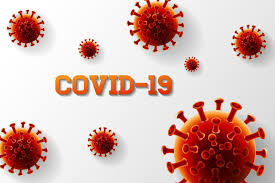Snow's realization came years before the confirmation of germ theory, which explains the existence of pathogens. He didn't understand how cholera was transmitted in the water, simply that patterns of disease indicated it was. Learning about the step-by-step progression of historical discoveries will, Andrews hopes, put in context the fits and starts of contemporary scientists' attempts to understand COVID-19.
在斯諾提出論點的數年后,解釋病原體存在的菌原論才得到證實。斯諾并不清楚霍亂是如何在水中傳播的,只是疾病的模式顯示如此。安德魯斯盼望,學習歷史發現的逐步進展,可以讓人將當代科學家嘗試了解COVID-19時進時退的過程,放到這類發現的脈絡中來看。
Maybe our unfiltered view will turn out to be a good thing. After all, the best way to build trust in science is by showing all of its hypothesis testing and hypothesis tweaking—maddening to watch while we're anxiously awaiting answers to a global plague, but in the end the only way toward results that will allow us to move on with our lives.
或許我們能直接看到這個過程到頭來是一件好事。畢竟,要建立對科學的信任,最好的方式是展示它所有的假設檢定和假設調整--在我們焦急等待關于這場全球瘟疫的答案時,這一切看著簡直令人發狂,但最終卻是唯一的途徑,通往能讓生活回歸正常的結果。

Surveys show the general public is less dismayed by watching scientists in action than I had feared. Since 2015, the Pew Research Center has tracked what Americans think about science, and it has steadily become more positive, including in a poll conducted in April and May 2020 as the coronavirus was cresting and many of those surveyed were under lockdown.
調查顯示,一般大眾在看著科學家行動時,并不如我所擔心的那么沮喪。自2015年起,皮尤研究中心就持續追蹤美國人對科學的看法,結果顯示有越來越正面的趨勢,其中包括今年4、5月做的一項民意調查,當時COVID-19疫情正達到高峰,許多受訪者都因封城而待在家里。
In January 2019, the last survey before the pandemic, respondents were already inclined to trust scientists, with 86 percent saying they had a "great deal" or a "fair amount" of confidence that scientists had the public interest at heart. That level of trust inched up to 87 percent amid the pandemic.
2019年1月,在全球大流行開始前的最后一次調查中,受訪者已傾向信任科學家,86%的人說他們“非常”或“十分”相信科學家把公共利益放在心上。大流行期間,這個信任程度微幅上升至87%。
But when I called Cary Funk, the director of science and society research at Pew, to talk about these encouraging results, she told me not to get ahead of myself, that the story is a bit more complicated. According to Funk, the surveys show a deep partisan divide in how much scientists are trusted. Republicans and Republican-leaning independents still seem reluctant to embrace science wholeheartedly. They are about half as likely as Democrats to express a "great deal" of trust in scientists—a proportion that has stayed stubbornly low at 27 percent.
但當我打電話給皮尤的科學與社會研究部主任凱麗·馮克,談談這些令人鼓舞的調查結果時,她告訴我別高興得太早,事情要更復雜一些。根據馮克的說法,調查顯示不同黨派對科學家信任的程度有很大的分歧。共和黨似乎仍不愿全心全意接納科學。他們表達“非常”相信科學家的比例約為民主黨支持者的一半--固守在27%的低比例。












